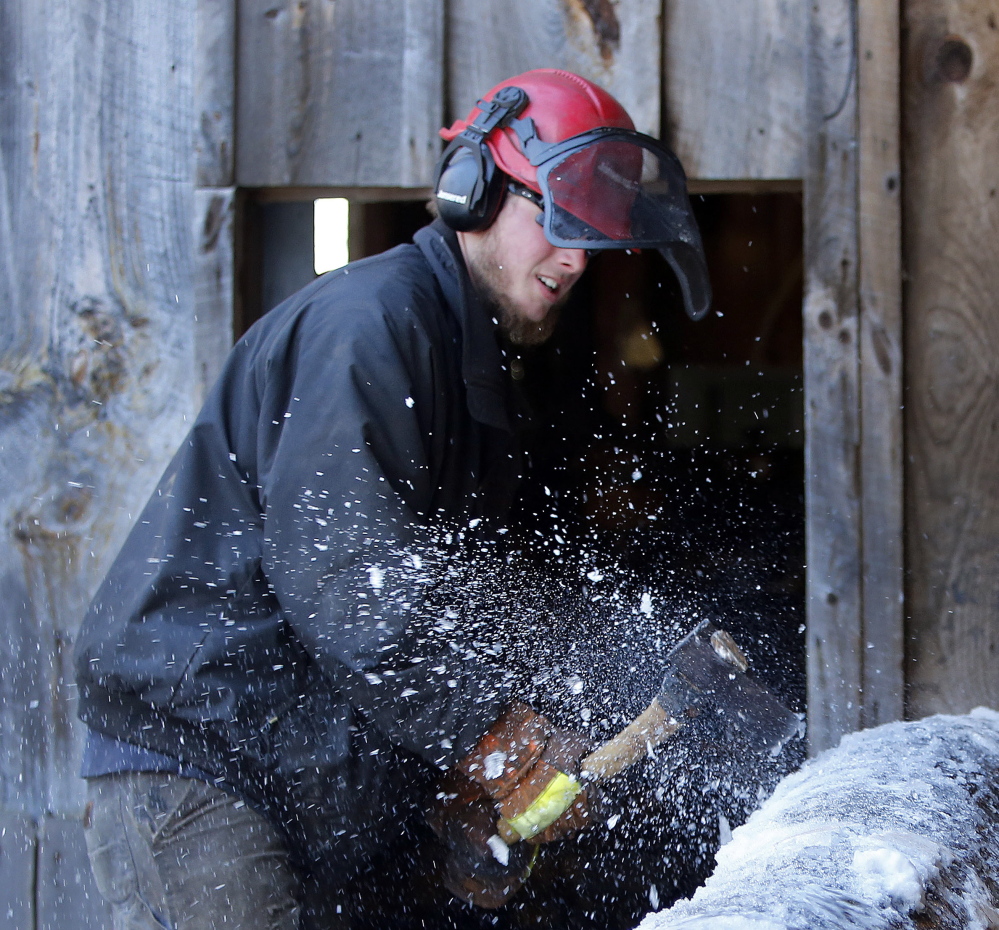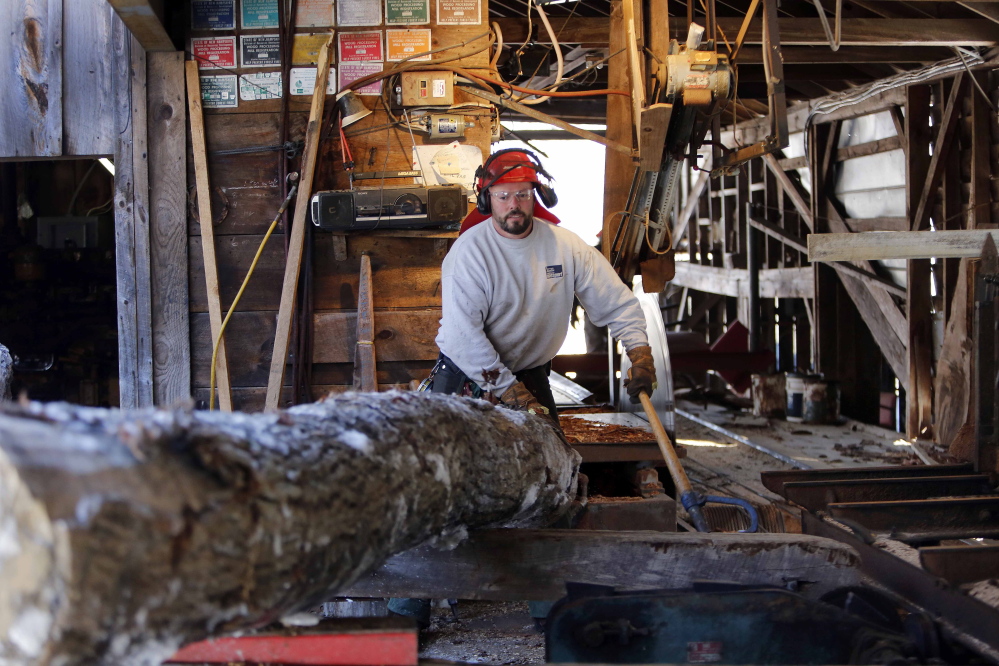GILMANTON, N.H. — On Bob Potter’s farm, the whine of a saw is heard over the grumbling of a diesel-powered engine as he and his boys carry on a family practice begun nearly half a century ago.
Moving back and forth through the blade on a motorized carriage, long poplar logs that the guys harvested off their Gilmanton farm are cut into planks that they’ll use this spring to build a new 30-foot-by-40-foot barn for some of their 85 head of beef cattle.
New Hampshire has deep connections to timber that go back to the 1600s when the state sent white pine trunks to England to make ships’ masts. Forests cover almost 85 percent of the state and the timber/forest industry pumps millions of dollars into the economy.
It’s not unusual to find homestead mills like Potter’s.
Potter’s father, also named Bob, started milling his own lumber in the late 1960s on the 250-acre farm, converting a massive heavy equipment motor to power his blades. It was a moneymaker for a while but when the economy turned sour in the 1980s, the younger Potter largely shut it down.
The family mostly uses the milled lumber for repair and construction projects on the farm that goes back eight generations to 1781. They’ll occasionally cut for outside jobs but keep the income flowing through an excavation and land-clearing business, the cattle and maple syrup. Potter and two of his three sons, 22-year-old Carl and 18-year-old Sam, worked on the sawmill this week because the sap hadn’t started running yet.
The saw will spin on but Potter won’t try to make a living off it.
“I love sawing lumber but if you can’t make any money at it, you have to go where the money is,” he said.
Send questions/comments to the editors.




Success. Please wait for the page to reload. If the page does not reload within 5 seconds, please refresh the page.
Enter your email and password to access comments.
Hi, to comment on stories you must . This profile is in addition to your subscription and website login.
Already have a commenting profile? .
Invalid username/password.
Please check your email to confirm and complete your registration.
Only subscribers are eligible to post comments. Please subscribe or login first for digital access. Here’s why.
Use the form below to reset your password. When you've submitted your account email, we will send an email with a reset code.